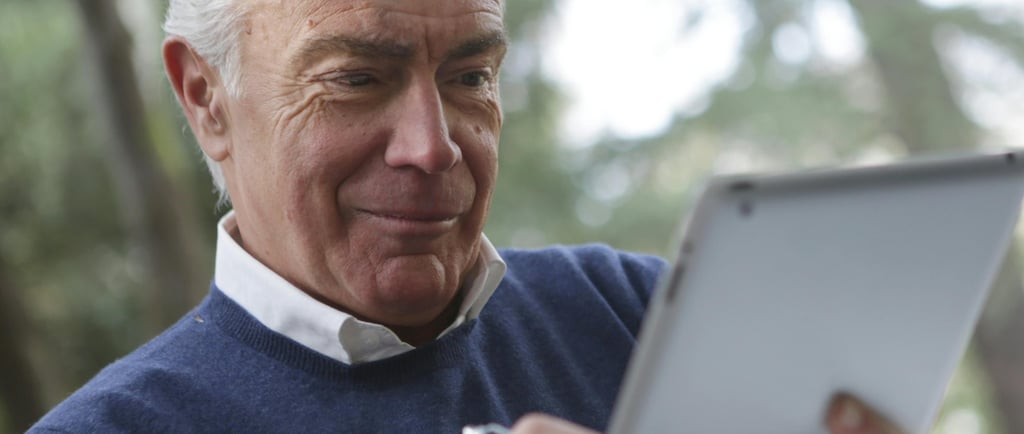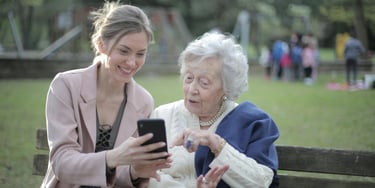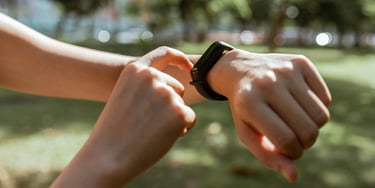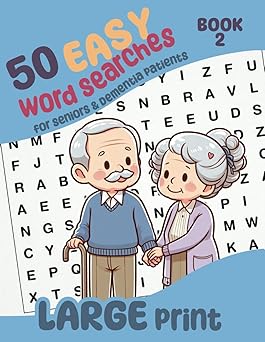Adapting Technology for Dementia Support
Modern technology can be a useful tool in dementia care and can provide mental stimulation for dementia patients.


Technology, when tailored to the needs of elders with dementia, can enhance safety, promote independence, and support cognitive function. From simple reminder apps to GPS trackers, dementia-friendly devices offer practical solutions for both patients and caregivers. By adapting technology thoughtfully, families can improve quality of life and reduce daily challenges. Here’s how to use technology effectively in dementia care.


Why Technology Matters
Dementia can make daily tasks like remembering appointments or staying safe at home difficult. Technology can provide structure, reduce anxiety, and enhance security. For example, devices can help with medication reminders or prevent wandering, a common concern. Simple, user-friendly tools are key to ensuring accessibility for those with cognitive decline.
Reminder Apps and Devices
Smartphone or tablet apps designed for dementia, like Medisafe or Reminder Rosie, can prompt medication schedules or daily tasks with audio or visual cues. For example, a reminder to take pills at 8 AM can include a cheerful voice message. Set up a tablet with a simple interface, large icons, and minimal steps to make it easy for the person to use or for caregivers to manage.
GPS Trackers for Safety
Wandering is a risk for many with dementia. GPS-enabled devices, like wearable trackers or shoe inserts (e.g., GPS SmartSole), allow caregivers to monitor their loved one’s location. These devices can send alerts if the person leaves a designated area. Choose discreet options, like a watch, to maintain dignity, and ensure the device is comfortable and easy to wear.


Smart Home Tools for Comfort
Smart home devices, like automated lights or voice-activated assistants (e.g., Amazon Echo), can simplify routines. Program lights to turn on automatically in the evening to reduce confusion during sundowning. A voice assistant can play calming music or provide simple reminders, like “It’s time for lunch,” with minimal setup. Keep commands straightforward to avoid frustration.
Memory Aids with Digital Frames
Digital photo frames loaded with familiar images, like family photos or favorite places, can spark memories and provide comfort. Set the frame to cycle through pictures with captions, like “Your 50th anniversary,” to prompt reminiscing. Place it in a common area for easy viewing, offering cognitive stimulation without requiring interaction.
Tips for Success
Choose devices with simple interfaces and large, clear displays to accommodate cognitive and motor challenges. Introduce one tool at a time, allowing the person to adjust gradually. Involve them in setup if possible, to maintain their sense of agency. Always consult a doctor to ensure devices align with their needs, and check for privacy concerns with tracking or smart devices. Caregivers should test devices to ensure reliability.
By adapting technology thoughtfully, caregivers can enhance safety and independence for dementia patients. These tools, when used with care, can reduce stress and create a more supportive environment, fostering connection and comfort.
Useful Resources
Easy Nature Wordsearch
An easy, large print wordsearch, suitable for elders with dementia or other forms of cognitive decline.
A dementia-friendly wordsearch book with a range of simple themes.
An easy word search book with Christian-themed puzzles. Large print and dementia-friendly.
Easy Wordsearch
Easy Christian Wordsearch
Connect
© 2025. All rights reserved.




